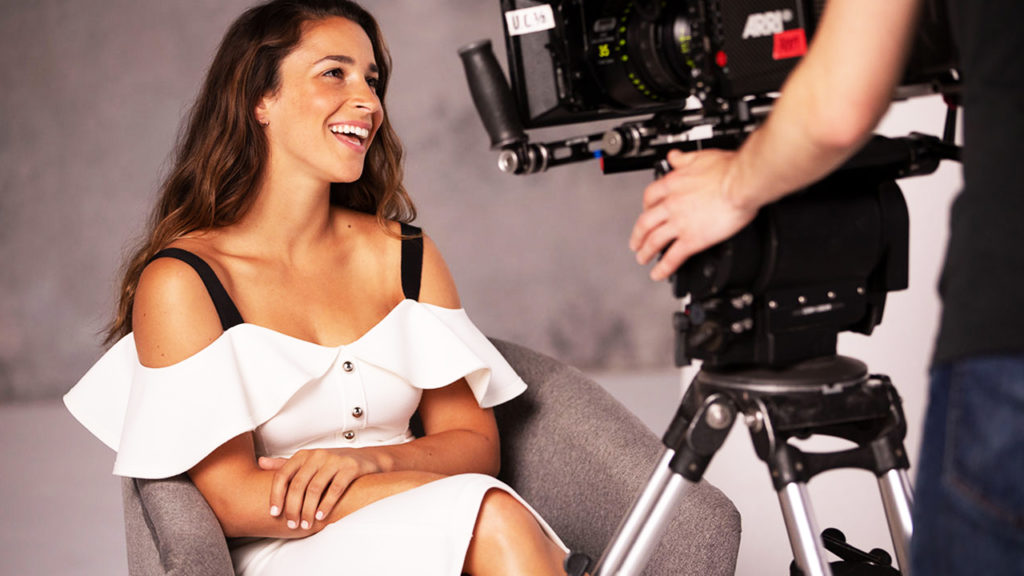Olay launched its new Face Anything campaign on Monday with a message of being true to oneself, partnering with influencers to reach a wide audience.
Face Anything is a multi-channel cause marketing campaign that encourages women to be “unapologetically” themselves. A 10-page spread in the September issue of Vogue features nine women including gold medalist Aly Raisman, plus-size model Denis Bidot, comedian Lilly Singh and others—each sharing a quality that they have been told was too much of, such as “too strong” or “too outspoken.” Embracing these qualities, each woman is pictured with the word “too” crossed out.
Several Instagram creators including Hunter McGrady have begun a 28-day Olay skincare routine using a custom bundle of products provided by the brand. Each influencer will share their results on social media before joining the campaign’s other models for a makeup-less walk down the runway at New York Fashion Week. Out-of-home ads in New York City’s Times Square and the Grand Central train station will invite consumers to join the challenge.
Face Anything also opens up about diversity, mental illness, vulnerability, ambition and being driven, but mentions nothing about the quality or appearance of a woman’s skin.
“Just remember that you know your truth, don’t let anyone rewrite your story,” Raisman says in the campaign.
Olay’s Face Anything campaign is unrelated to Smashbox Cosmetics’ marketing efforts using the same slogan.
Depicting women in diverse and natural forms has become a trend in the beauty industry as public views change and younger generations value individuality over social conventions. Glossier tapped into this self-affirming movement with its Body Hero campaign last September. The print and social campaign featured a diverse range of models, all appearing in the nude.
Building self-esteem in women and girls has also become an issue that beauty brands are tackling head-on. Unilever brand Dove partnered with Cartoon Network earlier this year to encourage body confidence through the show Steven Universe.
Evolving ideas about what it means to be beautiful are shaping the way brands approach their marketing strategies. In a Cannes Lions presentation, chief digital officer of L’Oreal Lubomira Rochet said that YouTube and other digital platforms helped democratize beauty and tell brands what they want.
One thing consumers seem to want is self-expression, and beauty products are simply a tool to accomplish this. A 2017 study by BeautyCon Media found that 81 percent of respondents between the ages of 13-34 believed beauty is not about products, but about cultural expression.

